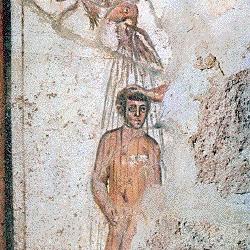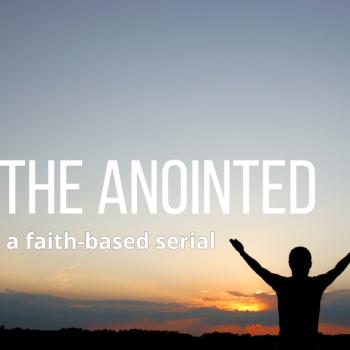 In her new book Simplifying the Soul: Lenten Practices to Renew Your Spirit, acclaimed author and Benedictine oblate Paula Huston gifts her readers with a refreshing book of daily Lenten practices aimed at de-cluttering their minds, hearts, and relationships. Huston lifts up the most ordinary, everyday actions—such as scrubbing a dirty corner—as vehicles for experiencing a more meaningful Lent and a simpler life.
In her new book Simplifying the Soul: Lenten Practices to Renew Your Spirit, acclaimed author and Benedictine oblate Paula Huston gifts her readers with a refreshing book of daily Lenten practices aimed at de-cluttering their minds, hearts, and relationships. Huston lifts up the most ordinary, everyday actions—such as scrubbing a dirty corner—as vehicles for experiencing a more meaningful Lent and a simpler life.
As part of the Patheos Book Club on Simplifying the Soul, Huston took some time to answer a few questions about her book, the purpose of spiritual disciplines, and what has been the most important spiritual practice in her own life this past year.
When people think about Lent, they often think about "giving something up," like chocolate or alcohol. Why is "giving something up" such an important practice in the spiritual life?
The attempt to "give something up," especially something we really enjoy, brings us into immediate contact with a part of ourselves we prefer not to look at: the demanding child in us who insists on getting what it wants now. The discipline of occasionally, deliberately denying ourselves something we are used to having whenever we'd like provides a much-needed reality check.
Your book takes the practice of giving something up much further, by suggesting a different action to try every single day of Lent. Some of these practices are familiar—like fasting or praying—but some might surprise us, such as emptying out a junk drawer. Can you give a few examples of the more unusual exercises from your book and how they might deepen our experience of Lent?
Ancient Christians saw the world as a sacrament, or outward and visible sign of a transcendent, mysterious reality. Thus, even the simplest daily actions could be an analogy for deeper spiritual truths. The daily practices in the book—some of them seemingly goofy, like not looking in a mirror for a day, or physically arduous, like trying to sleep on bare floor—are designed to wake us up to that beautiful, lost vision.
What are the benefits of adopting spiritual disciplines, if even temporarily?
Along with the great benefit of getting to know ourselves in a whole new (and sometimes rueful) way, they can also, over time, begin to temper our heedless rush toward instant gratification—a natural impulse that has been fanned into raging flames by the sophisticated advertisers who shape our culture. As the grip of our desires begins to loosen, we are freed up to focus on more profound things: goodness, truth, beauty, love, God.
In the Introduction to your book, you say that "sin is complicated... but humility, the ground of goodness, is simple and open." Can you say a bit more about that, and why humility is essential to our spiritual journey?
Sin is complicated because it is rooted in lying. In order to convince ourselves to enter into sin, we must in some way deceive ourselves—rationalize away our doubts, tell ourselves a consoling story about our real motivations. Each lie necessitates another, and eventually we wind up morally and spiritually blind. Humility, on the other hand, refuses to self-justify. Humility would rather be unfairly accused than take the risk of egoistic self-deception. And thus it helps foster clarity of vision.
Your background is Catholic, and you are a Benedictine oblate (lay associate) of a monastic community. Is this book just for Catholics, or did you have a larger audience in mind as you wrote this book? Who do you hope reads this book?
Though I've been connected with a monastic community for over twenty years, I am a convert to Catholicism. I was raised Lutheran, and then, like lots of '60s kids, rejected religion in my late teens. That rebellion eventually hardened into a state of angry agnosticism—angry, because I still didn't have any of the answers I'd been seeking as a young rebel. I never write anything without thinking of that young Protestant/would-be atheist and wondering if there's something valuable for her in what I say. And I hope I've been able to say it in such a way that she—and anybody else who picks it up—feels both loved and welcomed.





